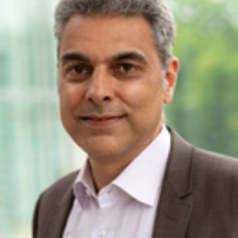
Matin Qaim
Director, Center for Development Research (ZEF), University of Bonn
Matin Qaim is a food systems and development economist with a doctoral degree in agricultural economics from the University of Bonn (2000). Before joining the Center for Development Research (ZEF) in 2021 he was Professor of International Food Economics and Rural Development at the University of Goettingen (2007-2021), Professor of International Agricultural Trade and Food Security at the University of Hohenheim (2004-2007), and postdoctoral scientist at the University of California at Berkeley (2001-2003).
Qaim has research and project experience in Europe, the USA, and numerous countries of Africa, Asia, and Latin America. Much of his research focuses on sustainable food systems, agricultural development, and the reduction of poverty, hunger, and malnutrition. He has over 250 academic publications, mostly in top disciplinary and interdisciplinary science journals, including Science, various Nature and Lancet Group Journals, and PNAS. He has been recognized as "Highly Cited Researcher" in 2021 and 2022.
Qaim is member of the German National Academy of Sciences (Leopoldina), Fellow of the American Agricultural and Applied Economics Association (AAEA), and President-Elect of the International Association of Agricultural Economists (IAAE). He has served on different high-level expert committees, including for the Global Panel on Agriculture and Food Systems for Nutrition, FAO, the International Maize and Wheat Improvement Center (CIMMYT), the European Commission, The Royal Society, and the German Federal Government and Parliament.
Less ![]()
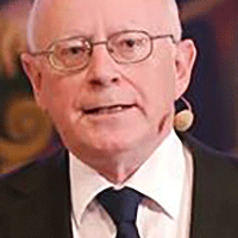
Mats Larsson
Professor of molecular physics, Stockholm University
Mats Larsson is Professor of Physics at Stockholm University and director of the AlbaNova University Center in Stockholm, which is a joint scientific center between the Royal Institute of Technology (KTH) and Stockholm University. He serves on the Nobel Committee for physics since 2016. His research interests are laboratory astrophysics and its importance to astrochemistry, free electron laser research targeting small molecules, and, more recently, molecular chirality and chiral interaction. He chairs a Nobel Symposium on Chiral Matter during 2020, with Dmitri Kharzeev as one of the co-chairs.
Less ![]()
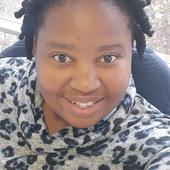
Matshidiso Valeria Sello
Researcher, Centre for Social Development in Africa,, University of Johannesburg
Less ![]()
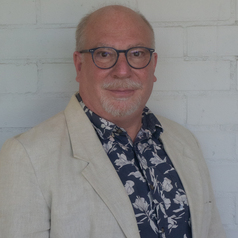
Matt Balogh
Adjunct Lecturer, University of New England
Matt Balogh is currently an adjunct lecturer at the University of New England where he is completing his PhD.
Matt was previously a social and media researcher, having been Managing Director of McNair Research from 2001 to 2018. Previous to that, Matt was Vice President of The Gallup Organisation, and prior to that, Group Marketing Services Manager at News Ltd.
Less ![]()
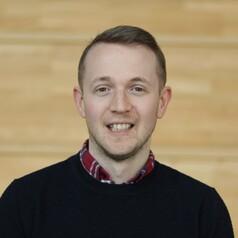
Matt Brooks
Senior Lecturer in Forensic Psychology, Manchester Metropolitan University
Matt Brooks, Ph.D., is a Senior Lecturer in Forensic Psychology at Manchester Metropolitan University, UK. Dr. Brooks’ work seeks to understand how strengths-based concepts such as posttraumatic growth can be used to enhance wellbeing in people who are exposed to adversity, with a particular interest in those who have experienced interpersonal violence. He has engaged in research and evaluations with criminal justice organisations, health providers, and local authorities, and has previously worked with young people in secure residential settings. Dr. Brooks’ work on posttraumatic growth has been published in international journals and quoted by the international media.
Less ![]()
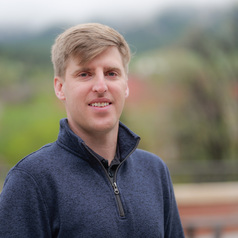
Matt Burgess
Assistant Professor of Environmental Studies, University of Colorado Boulder
I am an Assistant Professor of Environmental Studies, an affiliate faculty in Economics, a Fellow of the Cooperative Institute for Research in Environmental Sciences, and the Director of the Center for Social and Environmental Futures, at the University of Colorado Boulder. My academic training is a mixture of ecology and economics. I received my Ph.D. in 2014 at the University of Minnesota in Ecology, Evolution and Behavior, where I supplemented my training with graduate coursework in Applied Economics. My research focuses on economic growth futures and their impacts on the environment and society, mathematical modeling of human-environment systems, and political polarization of environmental issues.
Less ![]()
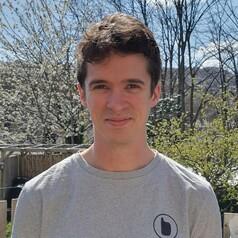
Matt Burke
WTW Research Fellow, University of Oxford
Matt Burke is the WTW Research Fellow in the University of Oxford's Sustainable Finance Group. His research focuses on pricing climate and environmental risks.
Less ![]()
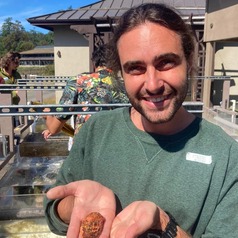
Matt Clements
PhD Student, University of Sydney
Matthew Clements is PhD student working closely with Professor Maria Byrne in her Marine and Developmental Biology lab at the University of Sydney. He is interested in the ecology of crown-of-thorns starfish throughout their entire life history; from larvae to adult. Echinoderms have had centre stage in his research career to date spanning topics of asexual reproduction, salinity tolerance of the larvae, juvenile-adult interactive behaviour and field based adult population demography and ecology. One Tree Island Research Station, the University’s facility on the Great Barrier Reef, provides a stunning coral reef system to delve into a marine biology career and an exciting place to continue exploring important topics in echinoderm biology.
Less ![]()
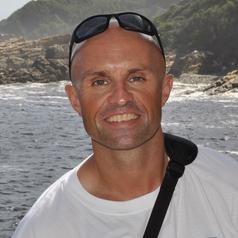
Matt Dicken
Adjunct Professor of Marine Biology, Nelson Mandela University
Matt Dicken is the head of research and monitoring at the KwaZulu-Natal Sharks Board and an adjunct professor at the Institute for Coastal and Marine Research (CMR), Ocean Sciences Campus, Nelson Mandela University in Gqeberha, South Africa.
He has over 20 years of senior management and lecturing experience in the fields of marine conservation, ecology and fisheries management.
His extensive experience of developing and implementing research projects focuses on better understanding the ecology of oceans with a specific focus on fisheries and the socioeconomics of marine tourism.
He is a nationally rated C2 scientist with over 40 peer reviewed publications.
At the KwaZulu-Natal Sharks Board research department, he is responsible for the strategic vision, management, policy formulation and cost-effective budget control.
He is also a visiting researcher at the School of Biological and Marine Sciences, University of Plymouth, United Kingdom.
Less ![]()
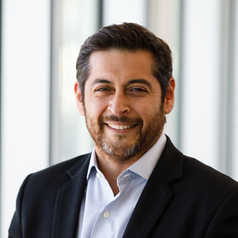
Matt Fernandez
Senior lecturer and researcher in chiropractic, CQUniversity Australia
Matt Fernandez is a registered chiropractor with over 20 years experience and senior lecturer within the Discipline of Chiropractic at CQUniversity, in Brisbane, where he teaches into the both undergraduate and masters component of the clinical chiropractic program. Matt earned his PhD at the University of Sydney and now directs his research efforts into patient education, exercise and physical activity promotion within chiropractic
Less ![]()
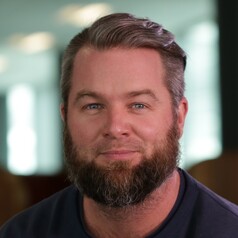
Matt Halliday
Lecturer in Advertising and Brand Creativity, Auckland University of Technology
Lecturer in Te Kura Whakapaho (School of Communications) at AUT. An early career academic trying to get the creative industries to help solve the world's wicked problems.
I teach Advertising and Brand Creativity and love helping students use their creativity for a good cause.
Less ![]()
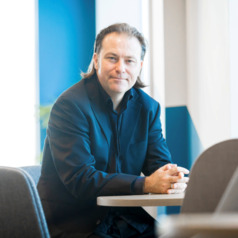
Matt Hopkins
Associate Professor in Criminology, University of Leicester
Matt is an Associate Professor at the Department of Criminology, University of Leicester. His research spans of variety of areas in relation to violence, organised crime, security and crime prevention. He has conducted research for the UK Home Office exploring motivations for the use of acid and corrosive substances in violent crime. He is the lead author (with Dr Lucy Neville and Professor Teela Sanders) of Acid Crime: Context, Motivation and Prevention (Palgrave Macmillan, 2021).
Less ![]()
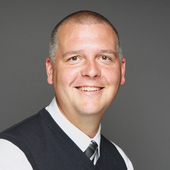
Matt Huml
Associate Professor of Sport Administration and Doctoral Program Coordinator, University of Cincinnati
Less ![]()

Matt Jewiss
Senior Lecturer in Sport and Exercise Science (Sport Psychology), Anglia Ruskin University
Matt joined ARU as a Senior Lecturer in Sport and Exercise Science (Psychology) in August 2022 from University of Hertfordshire where he was a Lecturer in Skill Acquisition and Motor Control since August 2019. Prior to joining UH Matt completed my undergraduate, postgraduate, PhD and teaching qualifications at University of Chichester.
Matt's main research interests are centred around identifying those psychological variables which are associated with peak performance (e.g., challenge and threat states) in performance settings (sport, education, aviation). Matt is also interested in emotional regulation, and I have published in the areas of cognitive psychology and leadership. Matt has collaborated with colleagues on a variety of research and consultancy projects at a range of HE institutions such as Prof. Iain Greenlees (University of Chichester), Dr Matt Smith (University of Winchester) and Dr Oliver Runswick (Kings College London).
Matt was awarded a PhD, Msc, Bsc and Fellowship of the HEA (FHEA) from the University of Chichester. Matt's research interests are performance under pressure in a variety of performance domains, e.g., sport, education, and aviation and emotional regulation (e.g., HRV). I lead L4 Multidisciplinary Sport and Exercise Science and l6 Applied Sport Psychology.
Research interests:
• Performance under pressure (Challenge and threat states, anxiety)
• Predictors of performance and adherence (self-efficacy, self-confidence, motivation)
• Emotional regulation (e.g., Heart Rate Variability)
• Scanning strategies and gaze behaviour
• Efficacy of Psychological Skills Training strategies
Less ![]()

Matt Kimberley
Assistant Lecturer in Psychology, Birmingham City University
Having completed my undergraduate degree in Psychology at Staffordshire University earlier that year, I began my PhD in September 2020. Under the supervision of Dr Jade Elliott and Dr Samuel Jones, my PhD investigated why some people share their sexual fantasies with a partner and others do not. During this research, I paid particular attention to the influence of the specific fantasy and the individual's relationship.
I am currently the lead of the "Gender, sexuality and intimate relationships" research lab at Birmingham City University. My research interests more widely focus on human sexuality, kink, intimate relationships, sexual communication, inequality and LGBTQ+ experiences. I have previously utilised both quantitative and qualitative research methods.
Less ![]()
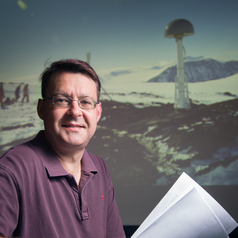
Matt King
I am Professor of Polar Geodesy and ARC Future Fellow at the University of Tasmania. My field of expertise is geodetic observation of Earth deformation and the global water cycle, including ice-sheet mass balance and sea-level change and particularly using the Global Positioning System (GPS) and the Gravity Recovery and Climate Experiment (GRACE). I also work on reduction of systematic and random errors in these techniques in order to maximise the information content in the data and improve the reliability of the interpretations. I have authored more than 80 peer-reviewed publications including several articles in the leading scientific journals Science, Nature, Nature Geoscience, Nature Climate Change and Proceedings of the National Academy of Science. In 2015 I was awarded the Royal Society (London) Kavli Medal and Lecture (see the lecture at https://royalsociety.org/events/2015/04/continental-loss).
Less ![]()
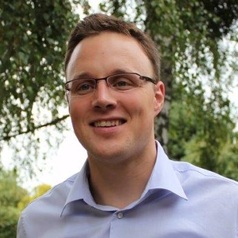
Matt Kranke
My doctoral research project studies the collaboration between the International Monetary Fund (IMF) and the World Bank from an ideational perspective. I seek to explain why, in marked contrast to parallel developments in the global political economy, the IMF and the World Bank opted to partly deinstitutionalise their collaboration after the global financial crisis.
Less ![]()
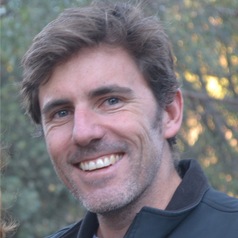
Matt McDonald
Formerly lecturer in politics and international studies at the University of New South Wales, University of Birmingham (UK) and University of Warwick (UK)
Less ![]()

Matt McGuire
Dean, School of Humanities and Communication Arts, Western Sydney University
Professor Matt McGuire is the Dean of School of Humanities and Communication Arts at Western Sydney University. He has over twenty years' of experience in the tertiary education sector of two countries - the UK and Australia.
Professor McGuire has held a number of Senior Management roles within the Australian higher education sector. These include Director of Higher Degrees by Research, Director of the Writing and Society Research Centre, and President of the Australian Universities’ Heads of English. Currently, Professor McGuire is Treasurer and a Board Member of DAASH, the Australasian Council of Deans of Arts, Social Sciences and Humanities.
Professor McGuire’s qualifications include a MA (Honours), MSc and PhD from the University of Edinburgh. He also holds an Executive MBA from the Sydney Graduate School of Management and qualifications from the Australian Institute of Company Directors and the Harvard Graduate School of Education.
Less ![]()

Matt Morison
Adjunct Professor, Geography, University of Winnipeg
Dr. Matt Morison is a Adjunct Professor of Geography at The University of Winnipeg as well as working in the Water Science and Watershed Management Branch of the Government of Manitoba. Dr. Morison holds a PhD from the University of Waterloo (2018) in Geography and Environmental Management, and a BSc from The University of Winnipeg (2012) in Mathematics and Geography.
The world’s freshwater resources face rising pressure from direct human impacts and the effects of climate change on both water quantity and quality. Climate change, winter warming, forest fire, agricultural land use, permafrost thaw, and oil sands development are just a window into the way we impact - and are impacted by - the water which we need to live.
We urgently need to understand both the state of our natural, less-impacted watersheds and freshwater bodies, as well as monitoring of areas of hard and fast disturbance to be able to make conclusive statements about the effects our activities and climate change are having on these regions. Dr. Morison believes these important research problems requires working at a variety of scales from soil grains and single trees all the way up to catchments thousands of kilometers apart, working within a big team with diverse perspectives and experiences.
Less ![]()
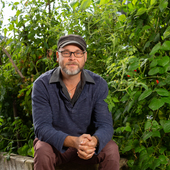
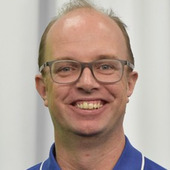

Matt Polacko
Postdoctoral Research Fellow, Political Science, University of Toronto
I am a Postdoctoral Research Fellow in the Department of Political Science, at the University of Toronto. I hold a PhD in Politics from Royal Holloway, University of London (2021). My research lies at the intersection of comparative politics, political economy, and political behaviour. I am particularly interested in the consequences of inequality on political behaviour across advanced industrialized countries.
My research has been funded by the Social Sciences and Humanities Research Council (SSHRC) of Canada, Fonds de recherche du Québec (FRQSC), and Royal Holloway, University of London.
I've published in American Behavioral Scientist; Canadian Journal of Political Science; Electoral Studies; European Political Science Review; Party Politics; Political Studies; Politics & Policy; Politics, Groups & Identities; Statistics, Politics & Policy; and West European Politics.
Less ![]()
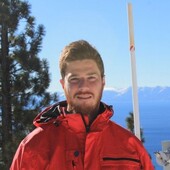
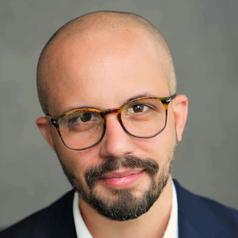
Matt Taglia
Senior Director of Emerson College Polling, Emerson College
Matt Taglia is the Senior Director of Emerson College Polling.
He has worked in polling, political communications, and political strategy since the 2012 election cycle, most recently consulting on behalf of independent expenditure campaigns for a national organization.
Prior to this, Matt was an independent pollster for private clients and media outlets across the country, specializing in mixed-mode methodology and new approaches to online data collection. He also served as the UK government’s Head of Political, Press, and Public Affairs for the Southeastern US, where he led a team that oversaw diplomatic engagement with politicians, media, and other stakeholders.
He holds his BA (Honours) in politics from Queen’s University in Canada and his MA in political science from Georgia State University, where he focused on political theory and quantitative research methodology.
Less ![]()
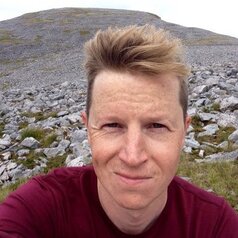
Matt Wilde
Lecturer in Human Geography, University of Leicester
Matt is the author of 'A Blessing and a Curse: Oil, Politics, and Morality in Bolivarian Venezuela' (Stanford University Press, 2023).
Less ![]()
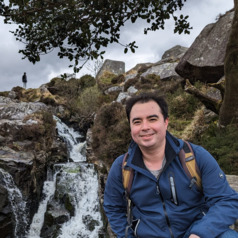
Matt J. Thorstensen
Postdoctoral Fellow, Department of Biological Sciences, University of Manitoba
I work on the genomics of wildlife, including fish and marine mammals. This work can have both fundamental importance and conservation applications.
Less ![]()

Matteo Gasparini
DPhil Candidate, Smith School of Enterprise and Environment, University of Oxford
Matteo Gasparini is a DPhil student at Oxford University's Smith School of Enterprise and Environment (SSEE) and Institute for New Economic Thinking (INET), as well as an External Advisor to McKinsey & Co. He works at the intersection between economics, finance and sustainability focusing on the impact of climate change risk and the energy zero transition on financial institutions and the broader financial stability. His research also focuses on how finance could support the energy transition and on assessing the policy implications for financial regulators and central banks. Previously, Matteo was an Associate at McKinsey & Co based in London where he supported leading financial institutions across Europe on climate, risk, strategy and analytics projects. He has also supported the European Central Bank (ECB) on various supervisory projects. Matteo holds an MSc in Financial Markets and Investment from Skema Business School in Paris, an MSc in Economics and Finance from the University of Milan-Bicocca, and a BSc in Economics from the University of Brescia.
Less ![]()
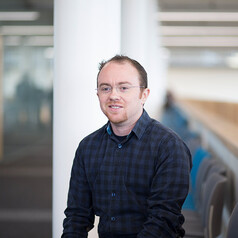
Matthew Addicoat
Senior Lecturer in Functional Materials, Nottingham Trent University
Dr. Addicoat’s research interests lie in computational combinatorial chemistry – that is using computer calculations to search and sort many thousands or even millions of possible chemical compounds, before any of them are synthesised. In particular, Dr. Addicoat is interested in applying these methods to materials chemistry, where the following three types of materials are of current interest:
Molecular Framework Materials – Molecular Framework Materials, such as Metal Organic Frameworks (MOFs), Covalent Organic Frameworks (COFs) and Zeolitic Imidazolate Frameworks (ZIFs) are highly porous materials made by stitching together various metal or organic “nodes” (corners) with organic “linkers” (edges) to create 2D and 3D frameworks. These materials typically have high surface area, tuneable pore size and changeable functional groups leading to possible applications in fields such as gas adsorption and separation, catalysis and sensing. Given the hundreds of different networks and the effectively infinite number of molecules that can be used to create a framework material, identifying the optimum framework by chance is highly unlikely.
Ionic Liquids – Ionic liquids (ILs) are liquids comprised entirely of ions, differentiated from typical ionic salts by having melting points below 100 oC. IL melting points are low because electrostatic interactions between component ions are weaker, and crystal lattice packing is hindered. This is typically achieved by making at least one of the ions large, unsymmetrical and organic. The physicochemical properties of ILs can be tuned through a judicious choice of ions. This flexibility has driven wide-ranging research into their use as solvents in green chemistry, energy and electrochemical applications, pharmaceuticals and lubricants.
Transition Metal Clusters – Small clusters of transition metal atoms in the sub-nanometre range have been shown to catalyse a number of environmentally important reactions – e.g. the oxidation of CO and reduction of NO. However, the properties of these clusters are very difficult to predict, and adding or subtracting a single atom can change the reaction rates by several orders of magnitude.
Less ![]()
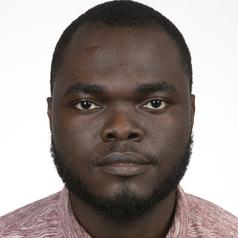
Matthew Adeleye
Assistant Professor of Physical Geography, University of Cambridge
I am a lecturer in Palaeoecology and Quaternary Science. My research focuses on understanding long-term interactions between terrestrial ecosystems, climate and Indigenous land use from centennial to millennial times scales and how the knowledge of this deep-time interactions can assist in addressing contemporary ecological/biodiversity issues.
Less ![]()
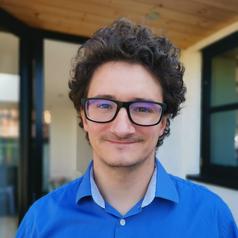
Matthew Aldrich
Associate Pro Vice Chancellor Employability and Opportunities and Associate Professor in Microeconomics, University of East Anglia
An applied labour market economist, my research has examined the value of degrees and the role of soft skills, to fatherhood and the role of family friendly policies in promoting gender equality, and intersectional equalities in driving lack of access to government support. With a strong interest in Graduate Outcomes and student employability, I am currently Associate Pro Vice Chancellor for Employability and Opportunities at UEA, with strategic oversight of our institutional strategy for employability, with a focus on teaching and learning and the wider student experience, Welcome Week and building learner communities, and placement activity.
Less ![]()
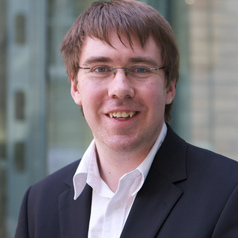
Matthew Ashton
I'm a lecturer in politics and the media at Nottingham Trent University. I did my BA degree in politics at NTU before taking a Masters in Politics and Contemporary History at Nottingham. I returned to NTU to do a Phd on the German part system passing my viva in 2009.
My current research interests lie in the area of the British and American political and media system.
Less ![]()
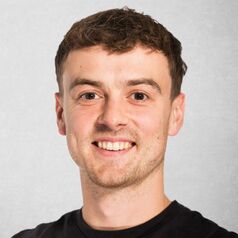
Matthew Barnfield
Postdoctoral Research Fellow, School of Politics and International Relations, Queen Mary University of London
Matthew joined Queen Mary University of London as a Postdoctoral Research Fellow in October 2023, supported by a British Academy Postdoctoral Fellowship. He previously held an ESRC Postdoctoral Fellowship at the University of Essex.
He holds a BA in Modern Languages and European Studies and an MRes in Politics and International Relations from the University of Bath, and was awarded his PhD at Queen Mary University of London in 2021.
Matthew’s research is in the field of political psychology and political behaviour. His British Academy project addresses the role of the future in democratic politics: how we think about the political future, what we want it to be like, and how that shapes the choices we make together. His PhD focused on closely related questions about how voters form expectations about election outcomes and how those expectations relate to their voting behaviour.
Less ![]()
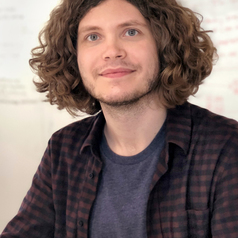
Matthew Beach
Doctoral Scholar, Geography, Queen Mary University of London
I am an artist-researcher working at the intersection of discourses around place, the photographic, and care in more-than-human worlds. My practice spans between more ‘normative’ humanities research outputs in the form of research publications and conference presentations, as well as artistic outputs in the form of printmaking, sculpture, and experimental films/filmic essays.
I maintain broad discursive interests around materialisms, ethics of care, more-than-human enquiry, science and technology studies, and participatory art models and criticism. Recently these areas have been focused on the colonial legacies of houseplants and on jellyfish economies.
Currently a doctoral scholar within the School of Geography at Queen Mary, University of London, my thesis (working title - Connective Tissue: (Un)lively Materialities of Gelatinous Life) considers the intersections between legislation, ethics, and naturecultures in mapping the material and social life of gelatine, collagen, and their related commodities. Gelatine and collagen are animal agriculture (by)products extracted from connective tissues in the form of odourless/tasteless granules or powder. It accomplishes this through three approaches: (1) charting the development of global gelatine/collagen markets by engaging with a selection of historical and contemporary production and consumption practices; (2) focusing on a collaboration between a private company and university scientists working to produce/sustain a coastal jellyfish/gelatine economy in the state of Georgia in the United States; and (3) exploring the emergent world of jellyfish aquaculture and companion gelatinous zooplankton.
Less ![]()

Matthew Beard
Adjunct Lecturer, UNSW Australia
Dr. Matthew Beard is an ethicist and moral philosopher. He is currently the Writer and Content Producer at The Ethics Centre, an independent, not-for-profit organisation focused on the promotion and exploration of ethical questions.He is also an Adjunct Lecturer at UNSW Canberra's School of Humanities and Social Sciences.
Matthew was awarded his PhD from the University of Notre Dame Australia for a thesis entitled ‘War Rights and Military Virtues: A Philosophical Reappraisal of Just War Theory,’ and was the inaugural recipient of the Morris Research Scholarship from Notre Dame. He has discussed subjects including military ethics, moral injury and PTSD, cyberwar, torture, and medical ethics amongst others in book chapters, scholarly articles, radio interviews, public opinion pieces, and at academic conferences both domestically and internationally.
Less ![]()
- Market Data























